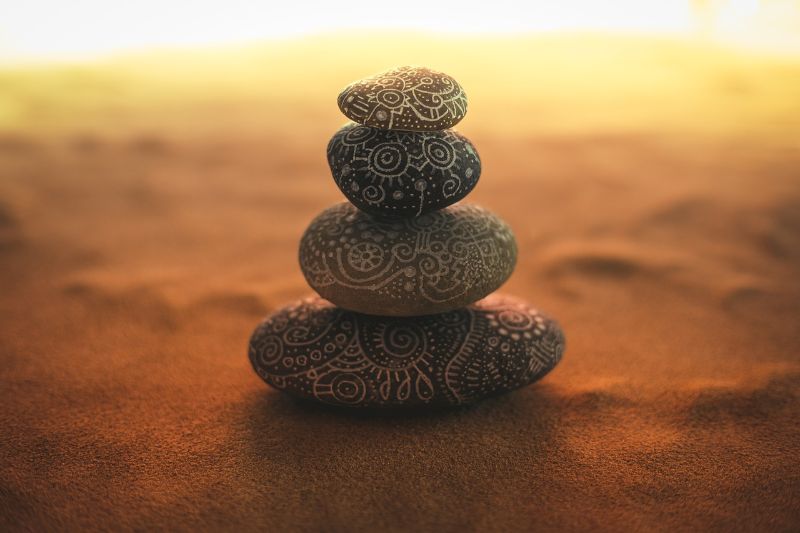According to Abby Day, some people who are critical of religion regard it as dogmatic and oppressive, prompting them to label themselves as atheists or agnostics. SBNR is for many people about not just rejecting religion outright, but also not wanting to be bound by it.
Before You Continue...
Do you know what is your soul number? Take this quick quiz to find out! Get a personalized numerology report, and discover how you can unlock your fullest spiritual potential. Start the quiz now!
SBNRs, according to Linda Mercadante, are adamantly anti-dogmatic when it comes to religious belief in general. They argue that belief is not only non-essential, but also possibly damaging or at the very least an impediment to spirituality.
Many of those surveyed who identify as SBNR, according to Philip D. Kenneson, experience a conflict between their own spirituality and participation in a traditional religious organization. The majority of them respect intellectual independence, curiosity, and an experimental approach to religion. Many people consider organized religion to be the main opponent of genuine spirituality, stating that spirituality is about private meditation and private experience rather than public ceremony. To be “religious” has an institutional sense, which is commonly connected with Abrahamic traditions: attending worship services, saying Mass, lighting Hanukkah lights, and so on. Being “spiritual,” on the other hand, implies personal practice and empowerment related to life's core objectives. As a result, spirituality has grown to have mostly positive connotations in societies that are strongly distrustful of institutional systems and place a high importance on individual freedom and autonomy, whereas religion has been viewed more unfavorably.
The SBNR phenomenon, according to Robert Fuller, is a mix of intellectual progressivism and mystical hunger, restless with traditional churches' piety.
Spirituality, according to Robert Wuthnow, entails far more than attending church and agreeing or disagreeing with church doctrines. Spirituality is the colloquial phrase for a person's relationship with God in Western culture. What many people see and do in their congregations surely influences how they think about religion and spirituality. It involves a person's self-identityfeeling loved by Godat a deeper level, and these feelings can wax and wane.
Can I be spiritual without being religious?
Spirituality is a topic that is frequently discussed, but it is frequently misinterpreted. Many individuals confuse spirituality and religion, and as a result, they bring their religious ideas and prejudices into debates about spirituality. Although spiritualism is emphasized in many religions, you can be “spiritual” without being religious or a member of an organized religion.
What does it mean to be religious vs spiritual?
What's the difference between spirituality and religion? Religion is a collection of organized ideas and behaviors that are usually shared by a community or group of people. Spirituality is more of an individual discipline that involves feeling at ease and having a sense of purpose.
What is it called when you believe in God but not religion?
Agnostic theism, also known as agnostotheism or agnotheism, is a philosophical position that embraces both theism and agnosticism. The existence of a God or Gods is believed by an agnostic theist, but the basis for this belief is uncertain or fundamentally unknowable. The attributes of the God or gods that the agnostic theist believes in may also or alternatively be agnostic.
What does it mean to be a spiritual person?
Spirituality is defined as the awareness of a feeling, sense, or belief that there is something more to being human than sensory experience, and that the greater total of which we are a part is cosmic or divine in nature.
What is more important religion or spirituality?
According to a recent TODAY poll, 77 percent of respondents see a distinction between religion and spirituality, with more than 70 percent believing that being spiritual is more important than being religious.
Which is better religion or spirituality?
When we look at the vastly varied ways people try to define and convey that distinction, we can see that there's something fishy about it. Take a look at these three definitions found on the internet:
- Religion is a human institution that was developed for a variety of reasons. Exert control, instill morality, stroke egos, or whatever else you choose to call it. Religions that are organized and organised almost completely eliminate God from the equation. You confess your sins to a priest, worship in ornate churches, and are advised what to pray for and when to pray it. All of these things separate you from God. Spirituality is something that a person is born with and grows into as they grow older. It could be sparked by religion or by a divine revelation. Spirituality encompasses all aspect of a person's existence. Spirituality is a choice, whereas religion is frequently imposed. To me, being spiritual is more vital and superior to being religious.
- Religion can be whatever the individual who practices it wishes. God, on the other hand, defines spirituality. Religion is a manifestation of the flesh since it is defined by man. Spirituality, on the other hand, is a manifestation of God's nature, as defined by Him.
- True spirituality can only be discovered deep within one's own self. It's how you love, accept, and relate to the world and the people in it. It can't be found in a church or by adhering to a certain set of beliefs.
Why is spirituality so important?
Many people's decisions are influenced by their spirituality. It promotes people to develop stronger bonds with themselves, others, and the unknown. Spirituality provides a sense of calm, purpose, and forgiveness, which can help you cope with stress. In times of emotional stress or disease, it becomes even more crucial.
Spirituality has a positive impact. Spirituality can help your mental health in a variety of ways:


